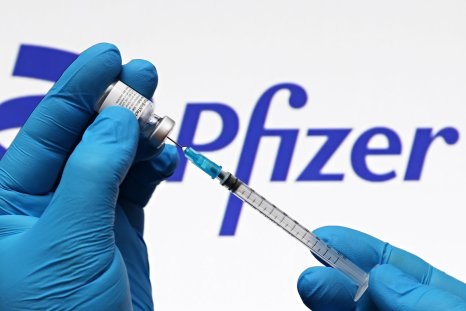
Pfizer joins efforts to restore immunisation services to Pre-COVID-19 levels
Pharmaceutical company, Pfizer, has stressed the need to restore and strengthen immunisation services to the levels before it was disrupted by the COVID-19 pandemic.
Advertisement
As a result, the company has joined other partners to support the year-long “Big Catch Up” campaign which is aimed at helping to reach out to millions of people with vaccines across the globe.
Pfizer in a statement [on Monday, April 24, 2023] to highlight the importance of vaccines and how they protect people of all ages against many diseases, said there was the need to “catch-up” with the immunisation disruptions caused by COVID-19.
World Immunisation Week, celebrated in the last week of April, aims to highlight the collective action needed to protect people from vaccine-preventable diseases.
Every year during World Immunisation Week Pfizer takes the time to celebrate the impact of vaccines, and this year is no exception even in the midst of heightened concern and apprehension around the status of vaccination programmes around the world.
This year's celebration, which is being held on the theme: "The Big Catch-up" marks the beginning of a year-long campaign to help restore and strengthen vaccination to pre-covid-19 levels, hence vaccinating.
The Pfizer Medical Director in charge of Sub-Saharan Africa, Kodjo Soroh, said “Vaccines underpin our global health security by preventing and controlling over 30 infectious diseases, reducing unnecessary hospitalizations and controlling infectious disease outbreaks.”
For him, vaccines present one of the world’s most powerful and cost-effective public health tools available and have successfully helped to eradicate, eliminate, and manage many deadly infectious diseases.
In addition, he noted, Smallpox has been eradicated and polio is nearly gone. Cervical cancer could become the first cancer to be eliminated.”
Mr Soroh expressed the hope that cervical cancer could become the first cancer to be eliminated, adding that “Vaccines also play a critical role in combatting antimicrobial resistance: they can reduce antibiotic use by preventing bacterial infections in the first place, such as with the pneumococcal and meningococcal vaccines, and can also prevent viral infections such as flu, which can provoke secondary infections requiring antibiotics.”
He said “Today, more than at any time in history, people are benefiting from safe and effective vaccines to prevent infections and diseases” and that “These injections have protected people of all ages, from newborns to seniors.”
He explained that to help protect as many people as possible from life-threatening illness, “we’re working to develop and distribute vaccines throughout the world,” adding “We’ve already seen that by channeling resources to the most promising public health opportunities, we can have an impact across all areas of life.”
Mr Soroh said although Pfizer has helped developed many vaccines, there was more to be done in terms of research.
“However, our work is not done. Many viruses and bacteria still present a serious health risk, and so we continue to focus on research and development in new areas, with the goal of adding more approved vaccines to tackle pathogens,” he explained.




